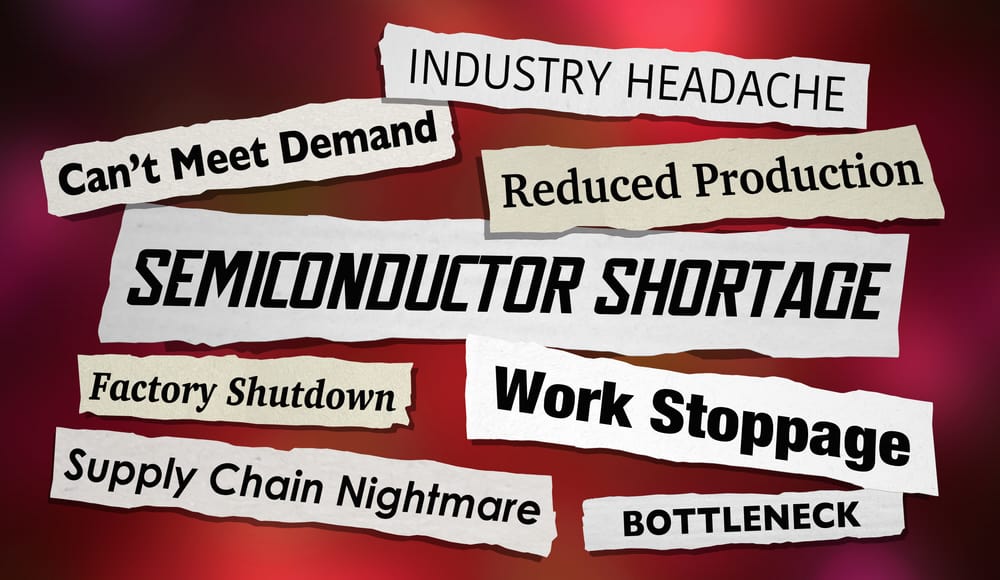
The advent of COVID-19 forced electronics manufacturers to rethink and transform their global supply chain model to meet their need for raw materials on time effectively. Manufacturers realized how having a high dependency on long-distance suppliers and failure to optimize stock inventory on time can derail them from profit over a long period.
Thus, many industries, especially PCB manufacturers, are leaning towards agile supplier mapping models to tune their supply chain process as per fluctuating global market conditions.
Before we learn more about supplier mapping and how it keeps the yield rate healthy, let’s have a look at some of the major supply chain challenges from the global spread of COVID-19.
Common Supply Chain Issues
Counterfeit Material
Dealing with counterfeit components has always been one of the most common challenges for the PCB supply chain system. Post COVID-19, the surge of counterfeit materials went up during international shipping disruptions. Though supply lines are much better now than before, the black market is still active.
You should check a component for counterfeiting if it has an unusually low price, poor-looking item or packing, incorrect logo, or sold without packing or opened. Counterfeit components can lower your PCB quality and hamper its performance, leading to even a complete system malfunction. Unless you keep track of your supplier, it is hard to avoid the mistake from happening again.
Material Shortage
Sometimes, you may not be able to purchase all the components required for the assembly process as per the BOM. The global PCB manufacturing industry has still not fully recovered from the major COVID-19 supply chain disruption that surfaced last year. Even if components are available, new factors such as excess shipping time and fluctuating costs continuously challenge the PCB industry. So you may still expect to witness component shortages for the next few years until the dust settles.
Part Obsolescence
With an increasing demand for compact designs, old PCB components are getting replaced by newer components with updated functionality and minimal packaging. In this regard, it is not surprising to face component obsolescence while fixing your old PCB designs two to three years from now.
The best way to mitigate these supply chain challenges is to perform supplier mapping as early as possible to ensure supply chain continuity even during the worst market situations.
Supplier Mapping and its Benefits
What is Supplier Mapping?
Supplier mapping involves gathering the exact source of all components in real-time and mapping them onto a sheet to label your suppliers as per their reliability during supply chain emergencies. The list will keep a trace of suppliers and their sub-tier suppliers. The mapping helps identify supply chain bottlenecks and devise strategies to avoid them with ease.
Supplier Mapping Benefits
Mapping your suppliers offers you a lot of tactical advantages over your competitors.
Supplier mapping:
- Enables you to plan ahead of any major project
- Offers material availability status in real-time
- Helps discard unreliable suppliers to shorten lead time
- Signals to stockpile materials to avoid delays and higher costs
Supplier mapping is a complex procedure that requires a continuous update of the current stock with different suppliers and their sub-tier suppliers. Thus, you need reliable sources to update the information from time to time.
Supplier Mapping Sources
Distributor and Manufacturer Websites
If your sources of supply are minimum, say less than five, you can map suppliers manually onto an excel sheet. You can access the official website of distributors and manufacturers to get the supply chain information you need. They will give you a real-time view of stocks, lead times, and MOQs. But you have to manually browse through the products catalog of all of them to update supplier status for upcoming projects from time to time.
Supply Chain Management Subscription Services
If you are dependent on too many suppliers, the manual mapping will call for human errors, thereby jeopardizing its very purpose in the first place. To manage a wide group of suppliers, it’s better to go for online supply chain management subscription services. However, you have to be a bit careful. Only a few of these subscription services work with authorized suppliers and have a trusted network to give you the correct information.
Electronic Components Data Aggregators
An ideal electronic parts aggregator, like Ultra Librarian, receives consolidated, updated vendor info and component availability that you can bank upon to map your reliable suppliers around the globe. You just enter a part number, and it gives you a list of suppliers, and sub-tier suppliers, along with cost, lead time, and other pertinent details..
Supplier mapping gives you a clear picture of what your supply chain looks like. However, you must lean towards one trusted source to get all the information you want to update your supplier map without wasting much time. In this regard, Ultra Librarian offers the world’s largest PCB CAD library to help you get rapid real-time insights into component availability with different levels of suppliers. Working with Ultra Librarian ensures you effortlessly create BOMs and order parts as you design. Register today for free!